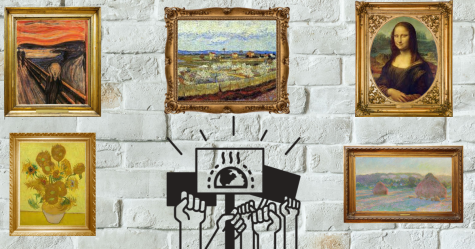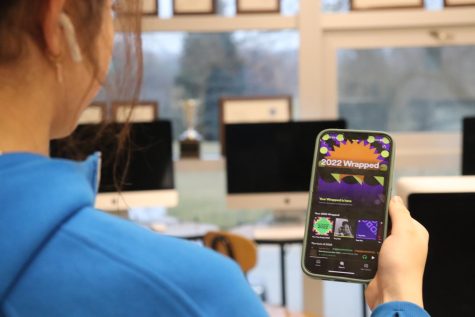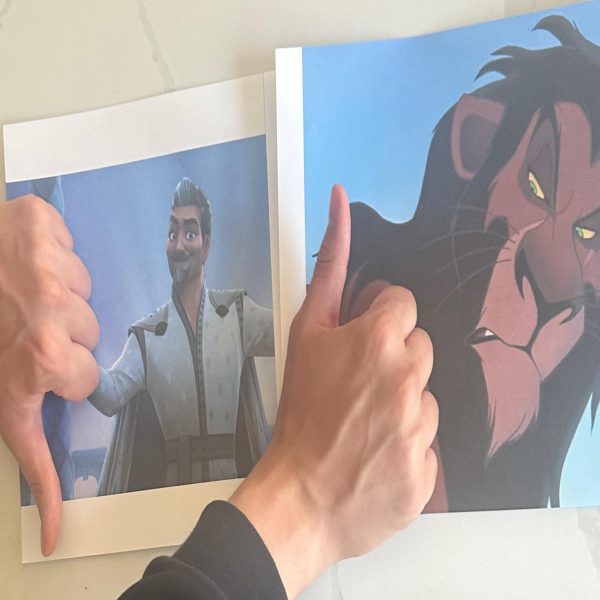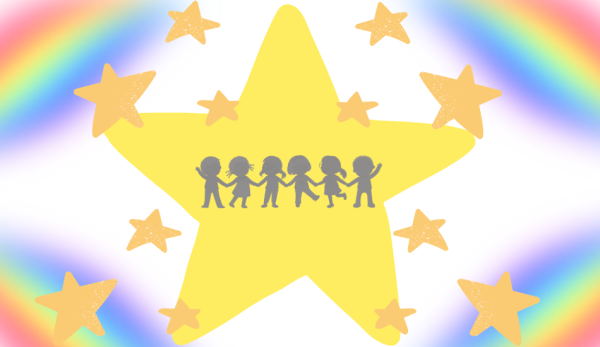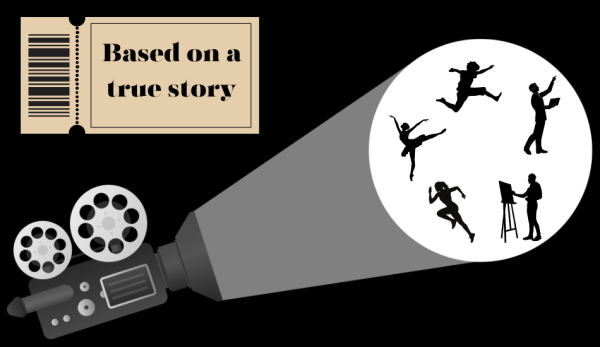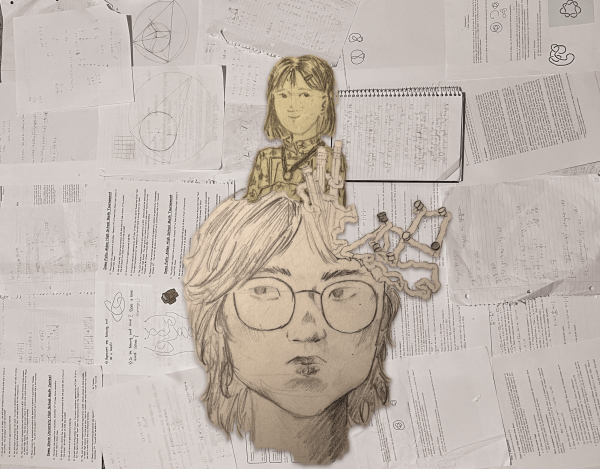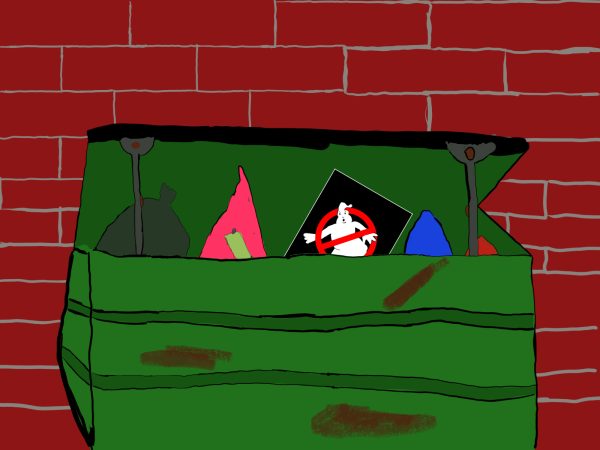The cycle that defines us
West Side Story editor Helelia Wa Kalala ’23 dives into the cyclical nature of personality development.
Growing up as a shy and introverted kid, I spent most of my time observing the people around me and how they interacted. I noticed the little things that set people apart in everyday life. How my classmate Alaina always made everyone laugh without trying to, how Camille was a natural leader and how Hanah always put everyone’s needs before her own. These differences are what makes us unique and keep our world balanced with different personalities. This realization led me to wonder how each one of us developed our personalities and what factors in our lives influence us the most.
So, how do we develop our personalities?
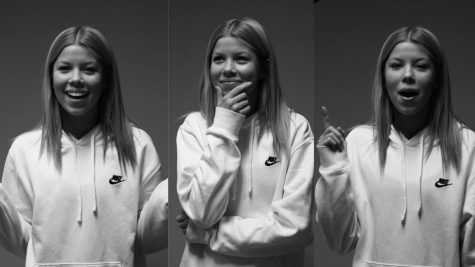
I began my research by asking West High students and staff this question, the majority of which cited environmental factors to be the main cause of our personality development.
“How I think people develop their personalities is through experiences and people that they meet every day,” said Sofia Musetescu ’25.
“I think it’s developed by who you grew up with, you see others, you see what they do and you do the same, especially when you are younger,” said Juan Salas Jr. ’26.
“Our personalities are developed through childbirth obviously but a lot of it has to do with how you grow up, like, your family. It’s just your traits, the learned traits that you get when you start growing up and how your family reacts,” said Math teacher Jean Morsch.
Given the difficulty of this question, I wanted to get answers from a professional in the science field, and what better way to do so than asking the science teachers here at West High? Biology and AP environmental science teacher Brad Wymer claims that personality is influenced by both our genetics and environment as did Chemistry teacher Megan Bildner and AP Psychology teacher Travis Henderson.
“What I think helps us form our personality is a combination of genetics and environments that we develop in,” said Wymer.
“I think a lot of it is probably chemical balances,” said Bildner. “So thinking about the DNA that you’re born with and how all of that interacts, but also the behaviors and mechanisms that you see around you on a day to day basis, whether it be from parents, teachers, friends, other family members, they help you develop certain personality traits.”
“So personality is partially influenced by genetics, and partially influenced by environment, and insight,” said Henderson. The fun and exciting debate is how much of the one and how much of the other.”
Though the science teachers helped me get a step further in my research, their responses left some questions unanswered. I wanted to dive deeper into the subject by looking at what specific aspects of our lives influence us the most. Upon my research, I found three main factors that influence our personalities, factors introduced by a social-cognitive theory supported by many respected psychologists and scientists. This theory was developed by Albert Bandura and in slight agreement with West High science teachers, he believed that both cognitive and learning factors influence our personalities. Bandura, a psychologist and professor at Stanford University, believed that our environment influences our behavior which then influences our inner psychology, creating a cycle known as Reciprocal Determinism.
Let’s break it down:
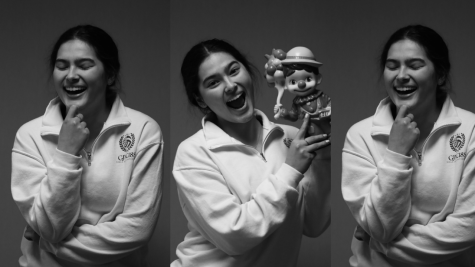
Environment:
Our environment influences our personality every day. Have you ever heard the phrase “you are a reflection of the five people you hang out with the most?” Well, think about it, are there times where you’ve done things out of character because of the people around you? Over time, those actions become habits, habits which can become traits, then you start to assimilate to the behaviors around you. Our environment has a great influence on who we are, and the people we surround ourselves with have a great influence on who we become.

Behavior:
The cognitive behavior aspect of the cycle is based on how we perceive ourselves and our response to feedback. Think about a time where you submitted a paper or art project that you were graded on, if the feedback was negative, how did that impact your confidence in your abilities? This can actually go on to affect your future decisions and the habits you develop. Trevor Moawad, an author and life coach once told a story from the 1980s that illustrates this. He talked about a below than average student who received an unexpected high SAT score that gave him so much confidence in his own abilities that he started to pursue things fitting his new perception of himself, leading him to success later on in life.
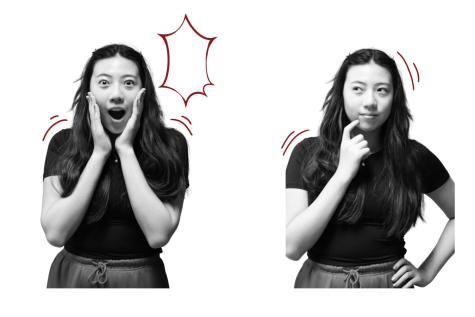
Cognition:
The third part of this cycle is all about how your inner psychology affects the other two parts. We all have those internal motives or morals that guide us through the decisions we make. They can contradict with our environment or behavior. For instance, our interests are very unique to us, liking soccer or reading books can be interests we have that are also part of our cognition.
These three factors all work together by simultaneously influencing each other. A person can think they simply like soccer but the reason they like the sport may be because of environmental factors. Factors such as a family member who enjoys watching soccer or their parents once playing soccer can contribute to their interest in the sport. It can also be influenced by behavioral factors such as being really good at dribbling and receiving feedback from a coach about that. All of these together help us form our personality and who we are.
Henderson confirmed the Reciprocal Determinism theory and further explained it citing Albert Bandura.
“So Bandura’s theory tries to take that into account [environment, behavior, cognition] and he basically says that those three things all influence one another to shape our personality,” said Henderson. “Like, you’re an introvert and you’re a teacher, you have to talk to people all the time so because you’re in that environment, it actually might overtime make you less introverted. So they all influence each other in both directions and that’s why it’s called reciprocal.”
As you go through life, reflect on how these factors work together to form your personality and those of the people around you. Check out this free personality test to find out more about what category you fall into.

Your donation will support the student journalists of West High School. Your contribution will allow us to purchase Scholarship Yearbooks, newsroom equipment and cover our annual website hosting costs.
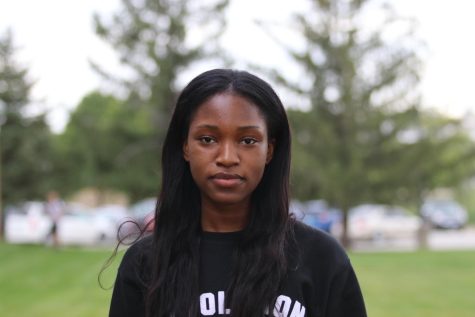
(she/her) Helelia is a senior war at West and has been on staff for 3 years. She is the social media editor of all WSS accounts. She enjoys golfing and...
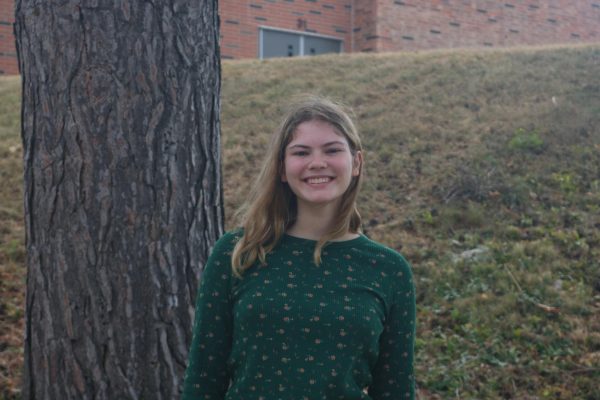
(she/her) Tessa is a senior this year and this is her 3rd year on staff. She is the profiles editor and one of the social media editors. She loves reality...



